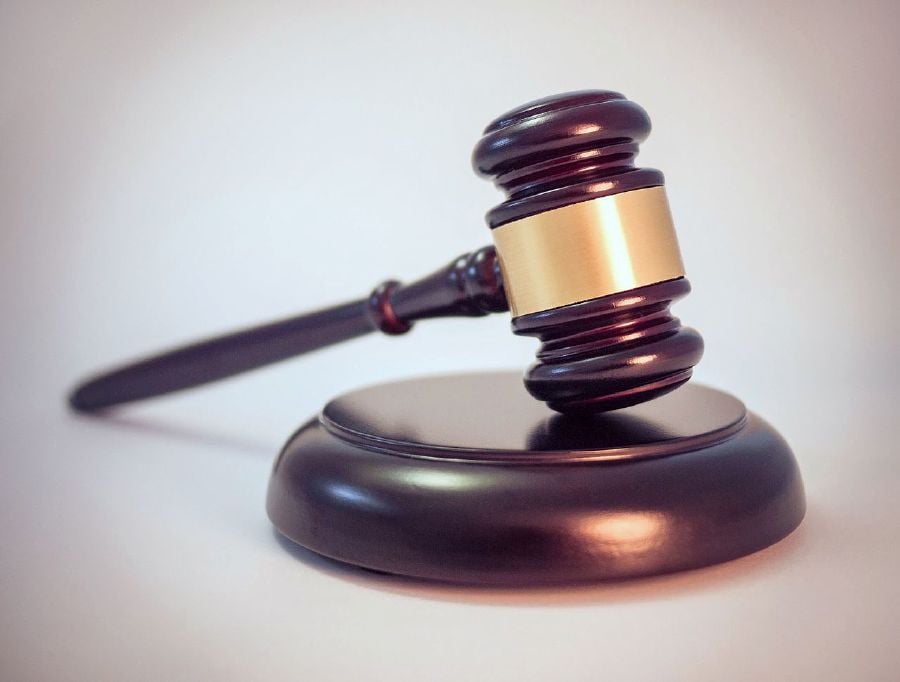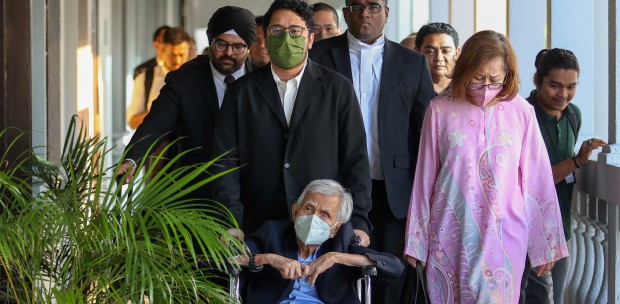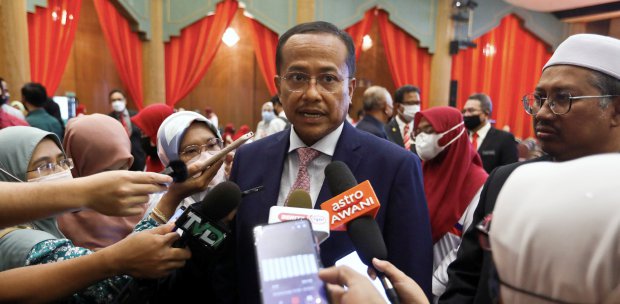KUALA LUMPUR: Three Syiah sect followers failed to challenge the Selangor Islamic Religious Department (Jais) decision to charge them with defying the direction of the mufti, last year.
Shah Alam High Court judge Dr Shahnaz Sulaiman when dismissing the trio's application for leave to initiate judicial review application said the civil court had no authority to decide on matters pertaining to the Syariah law.
"While the applicants have cited constitutionality issues as their grounds for this leave application to be granted, the approach to be taken as determined by superior courts cited is the subject matter approach.
"In this case, the subject matter that is being challenged is the impugned charges and consequently the impugned fatwa.
"Now, does the subject matter of this judicial review application fall within the ambit of the civil courts or the syariah courts?
"The facts of this case are that the mufti had issued a fatwa banning the practice of Syiah teachings, specifically Fatwa Sighah Berkaitan Ajaran Syiah di Negeri Selangor (the impugned fatwa).
"The applicants were charged for the offence of violating the impugned fatwa.
"It would appear to this court that jurisdiction is vested in the Selangor Syariah Subordinate Court to try these offences," she said.
Shahnaz said the impugned charges were not amenable to judicial review pursuant to Article 121(1A) of the Federal Constitution which dispossesses the civil courts of jurisdiction in matters falling within the exclusive jurisdiction of the Syariah courts.
She said the civil high courts lacked the authority to intervene in matters exclusively under the jurisdiction of syariah courts.
"Any interference by civil high courts would be considered a violation of Article 121(1A) of the Federal Constitution.
"The applicants are not challenging the validity of the sections to which the Impugned Charges was relied upon, but are challenging the validity of the impugned fatwa," she said.
Shahnaz said the impugned fatwa asserted that Syiah teachings significantly violate the authentic principles of Islam.
She said it identified disapproved elements within Syiah teachings, considering some as inherent to its core, and declared Syiah teachings as deviant.
"The applicants argue that the teachings of Syiah, specifically Syiah Ja'fariyah, align with true Islamic teachings, contesting the substance of the impugned fatwa.
"This civil High Court is clearly not qualified nor equipped to deal with such issues.
"From this perspective, it is crucial to emphasise that the resolution of the issue at hand demands a thorough examination of Islamic law by competent jurists.
"The syariah court stands as the sole qualified forum for such deliberations," she added.
On Sept 6, 2019, a group of individuals including the first applicant, organised a closed event for the purpose of the commemoration which took place near Taman Sri Gombak in Selangor. This event was also attended by the second and third applicants.
At or about 10pm, the event was raided by Jais and the applicants together with 19 other attendees were detained and brought to the Pejabat Agama Islam Daerah Gombak for investigation.
On March 23, last year, the applicants were charged in the Selangor Syariah Subordinate Court at Gombak Barat with attempting to act in contempt of religious authority by defying the direction of the mufti.
The offence under section 52 of the Syariah Criminal Offences (Selangor) Enactment 1995 read with section 12(c) of the Syariah Criminal Offences (Selangor) Enactment 1995.






